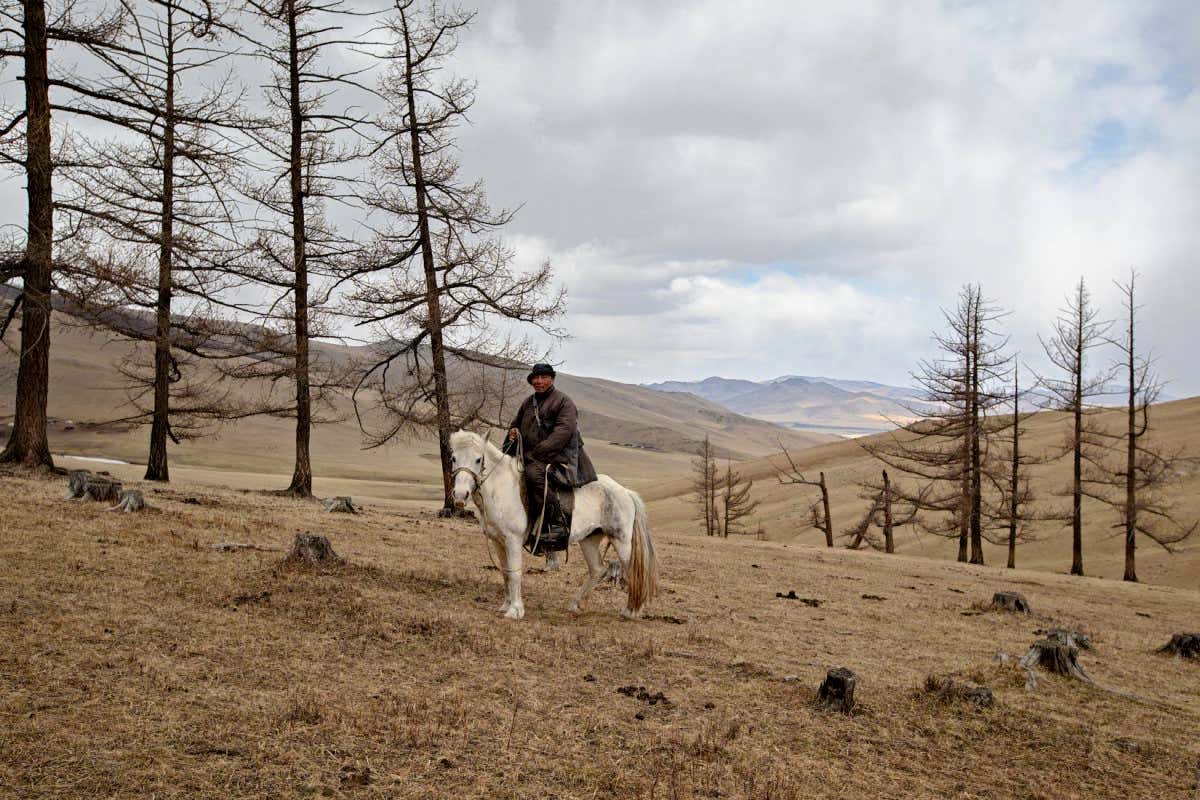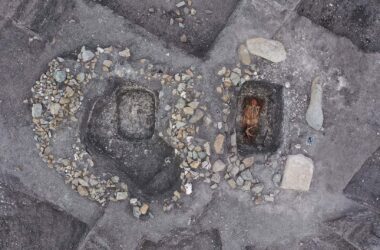Ganbaatar Davaasuren (known as “Bukhuu”) in Uvurkhangai province, Mongolia
Matilde Gattoni
FORTY per cent of the world’s cashmere is sourced from the windswept plateau of Mongolia.
Bukhuu’s 14-year-old son Mungun Huleg gathers the goats before selecting those that need to be combed that day
Matilde Gattoni
The fabric is made from the undercoats of the local goats, which develop a particularly tight fur to survive the harsh winters, where temperatures can drop as low as -40°C. In past decades, cashmere has made a fortune for local herders, becoming the main source of income for a third of the Mongolian population.
Tserennadmid Khaltarkhuu cuts a baby goat’s ears to mark them with the help of his children
Matilde Gattoni
But lately climate change and overproduction have threatened the cashmere supply, and a unique way of life with it. In Mongolia, temperatures have warmed by more than 2°C in the past 80 years, above the world average, and could rise by up to 5°C by the end of the century. Milder winters – which can negatively affect the quality of cashmere – are now followed by long, dry springs and short summers, when not enough rain falls to sustain the pastures.
Bukhuu’s father Davaasuren Tsogt sits outside his ger (a traditional Mongolian dwelling)
Matilde Gattoni
The global cashmere boom saw the number of goats skyrocket from 10.2 million to 26.5 million, causing overgrazing and desertification. Seventy per cent of Mongolia’s pastures are already considered degraded.
A herd of goats on a wall built from stones from the Gobi desert
Matilde Gattoni
To address the problem, local herders are reviving traditional pastureland management practices. Cooperatives have also been set up to coordinate grazing and rotation between pastures, to give nature the chance to replenish itself, and the national government has imposed a tax on livestock to curb numbers.
Orkhontuya Oidovdagva answers the family mobile phone from the centre of a ger, where the phone is left to hang all day
Matilde Gattoni
But so far, no alternative source of income seems a ready substitute to a fabric that has provided an economic lifeline for a nomadic way of life that would otherwise have been lost.
A goat being combed
Matilde Gattoni
Topics:








